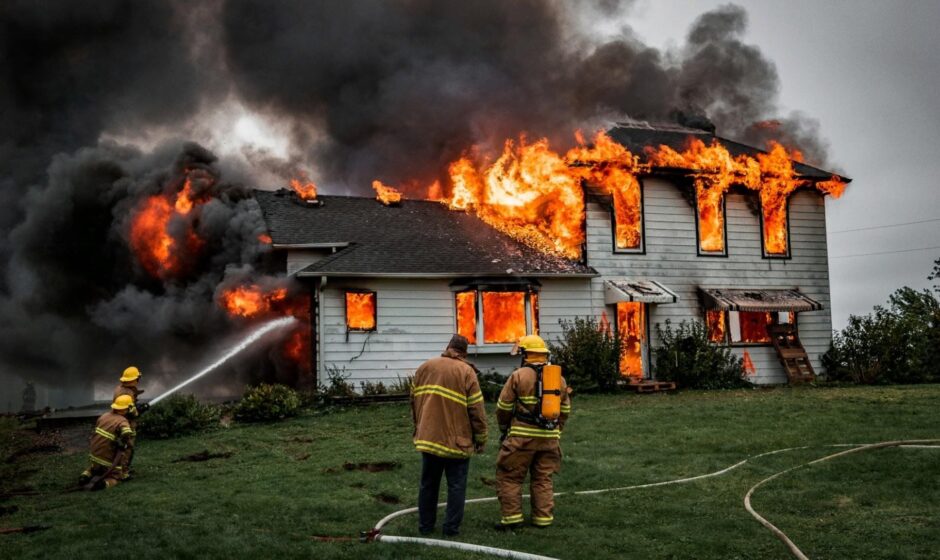Fire damage can lead to devastating consequences for homeowners, affecting property, personal belongings, and even lives. Implementing preventive measures can significantly reduce the risk of fire damage in your home. By following these top tips, you can safeguard your household and maintain peace of mind.
Why Fire Prevention Matters
Fires can occur unexpectedly, often due to human error, faulty equipment, or natural disasters. The aftermath can be financially and emotionally overwhelming. Taking proactive steps not only protects your home but also ensures the safety of your loved ones.
Top Tips to Prevent Fire Damage in Your Home
To prevent fire damage in your home, start by installing smoke detectors in every room and testing them monthly. Create a fire escape plan with clear routes and practice it regularly. Have your electrical wiring inspected to avoid overloads, and keep flammable materials away from heat sources like stoves and heaters.
In the kitchen, never leave cooking unattended and clean grease buildup frequently. Always keep candles and open flames supervised, and use fire-resistant materials for home renovations. Clean your chimney and fireplace annually, and ensure fire extinguishers are accessible in key areas. Lastly, trim trees and bushes around your home to prevent fire spread. These simple steps can significantly reduce the risk of fire damage and keep your family safe.
1. Install Smoke Alarms and Fire Detectors
Smoke alarms are essential for early fire detection. Install them in every room, particularly near sleeping areas and kitchens. Test them monthly and replace batteries at least once a year. For advanced protection, consider installing interconnected alarms that sound throughout the house when one is triggered.
2. Practice Safe Cooking Habits
The kitchen is a common area for home fires. Follow these precautions:
- Never leave cooking food unattended.
- Keep flammable items like paper towels and curtains away from stoves.
- Use timers to avoid forgetting about food in the oven or on the stove.
3. Maintain Electrical Safety
Electrical fires are another leading cause of fire damage. To prevent them:
- Inspect wiring regularly and replace frayed cords.
- Avoid overloading electrical outlets.
- Hire professionals to handle electrical repairs.
4. Keep Flammable Materials Away
Store flammable liquids, such as gasoline and paint thinners, in well-ventilated areas away from heat sources. Avoid smoking indoors, and use candles sparingly, ensuring they are extinguished before leaving the room.
5. Develop an Emergency Escape Plan
Create a fire escape plan for your family, ensuring everyone knows at least two exits from every room. Practice fire drills twice a year to reinforce the plan. A well-prepared family can evacuate safely, minimizing injuries and loss.
6. Regularly Inspect Heating Systems
Heating equipment, including furnaces, space heaters, and chimneys, should be inspected annually by professionals. Clean filters and remove debris to prevent blockages that could ignite a fire.
7. Use Fire-Resistant Building Materials
During renovations or construction, opt for fire-resistant materials such as:
- Concrete
- Brick
- Fire-resistant glass
These materials can help contain fires and limit damage.
8. Invest in Fire Extinguishers
Place fire extinguishers in key areas, such as the kitchen, garage, and near fireplaces. Familiarize everyone in the household with how to use them effectively.
The Role of Hensley Adjusters in Fire Damage Recovery
Despite your best efforts, fires can still happen. In such cases, professionals like Hensley adjusters can assist in managing fire damage claims. They advocate for homeowners, ensuring fair compensation for losses and providing guidance through the complex claims process.
FAQs
-
What are the most common causes of fire damage in homes?
The most common causes include:
- Unattended cooking
- Faulty electrical wiring
- Heating equipment malfunctions
- Smoking indoors
Improper storage of flammable materials
How can Hensley adjusters help with fire damage claims?
- Hensley adjusters work with homeowners to evaluate fire damage, document losses, and negotiate with insurance companies for maximum compensation. Their expertise ensures a smooth and efficient claims process.
What are the most common fire hazards in the home?
The most common fire hazards include faulty wiring, unattended candles, cooking accidents, and clogged dryer vents. Regular maintenance and awareness of these risks can help prevent fires.
How often should I have my home’s electrical system inspected for fire safety?
It’s recommended to have your home’s electrical system inspected every 3 to 5 years by a licensed professional to identify any potential fire hazards and ensure everything is up to code.
What can I do to prevent kitchen fires?
To prevent kitchen fires, never leave cooking unattended, keep flammable objects away from stovetops, and ensure your smoke detectors are working properly. Consider installing a fire extinguisher in the kitchen for added safety.
Conclusion
Preventing fire damage requires a combination of vigilance, regular maintenance, and emergency preparedness. By implementing these top tips to prevent fire damage in your home, you can protect your property and loved ones from the devastating effects of a fire. In the unfortunate event of a fire, professionals like Hensley adjusters can provide invaluable support in recovering and rebuilding your life. Prioritize fire safety today to enjoy a secure and worry-free home.



